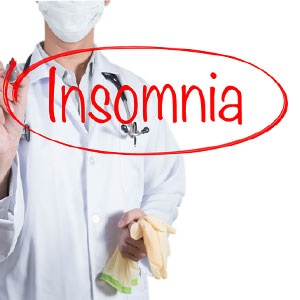
Insomnia may be caused by the following:
- Emotional distress, especially from internalised anger or anxiety.
- Overusing stimulant substances such as caffeine (found in coffee, colas, chocolate and some energy drinks like Red Bull), nicotine, certain medications, herbal remedies, and alcohol. Alcohol consumption may cause initial drowsiness, but this is usually followed by sudden wakefulness once the alcohol is metabolised. Paradoxically, insomnia may result from sedatives prescribed to relieve it. Some people, especially the elderly, develop an inverted sleep rhythm: drowsiness in the morning, sleep during the day, and wakefulness at night.
- Disturbances in your body clock or circadian rhythm. This may be the result of an irregular sleep schedule due to, for example, excessive daytime napping or late-night partying. Disturbance of sleep timing is common in people travelling by plane to different time zones, night-shift workers and high-school and university students doing "all-nighters" when cramming for tests.
- Environmental factors such as noise, extreme temperatures, bright lights and sleeping in unfamiliar surroundings can cause transient and intermittent insomnia.
- Many illnesses, including ulcers, depression, diabetes, kidney disease, heart failure, Parkinson's disease and hyperthyroidism, may lead to chronic insomnia. Shortness of breath from asthma or other medical problems, heartburn, frequent urination and chronic pain (e.g. from arthritis or leg cramps) can also cause sleep problems.
- Insomnia may be associated with an underlying psychiatric conditions such as depression or schizophrenia. Early morning waking is common in some acutely depressed people. Other sleep disorders may also lead to chronic insomnia.
- Sleep disorders. Sleep apnoea (snoring with numerous or prolonged breathing pauses during sleep), narcolepsy (inability to control staying awake or falling asleep), periodic leg and arm movements during sleep (the muscles twitch or jerk excessively), or restless legs syndrome (an overwhelming need to move the legs) can all interfere with sleep onset and maintenance.
- Eating large meals close to bedtime.
- Doing vigorous exercise close to bedtime.
Read more:
Risk factors for insomnia
Reviewed by Dr Irshaad Ebrahim, specialist neuropsychiatrist in sleep disorders at The London Sleep Centre and The Constantia Sleep Centre. FRCPsych. April 2018.




 Publications
Publications
 Partners
Partners














